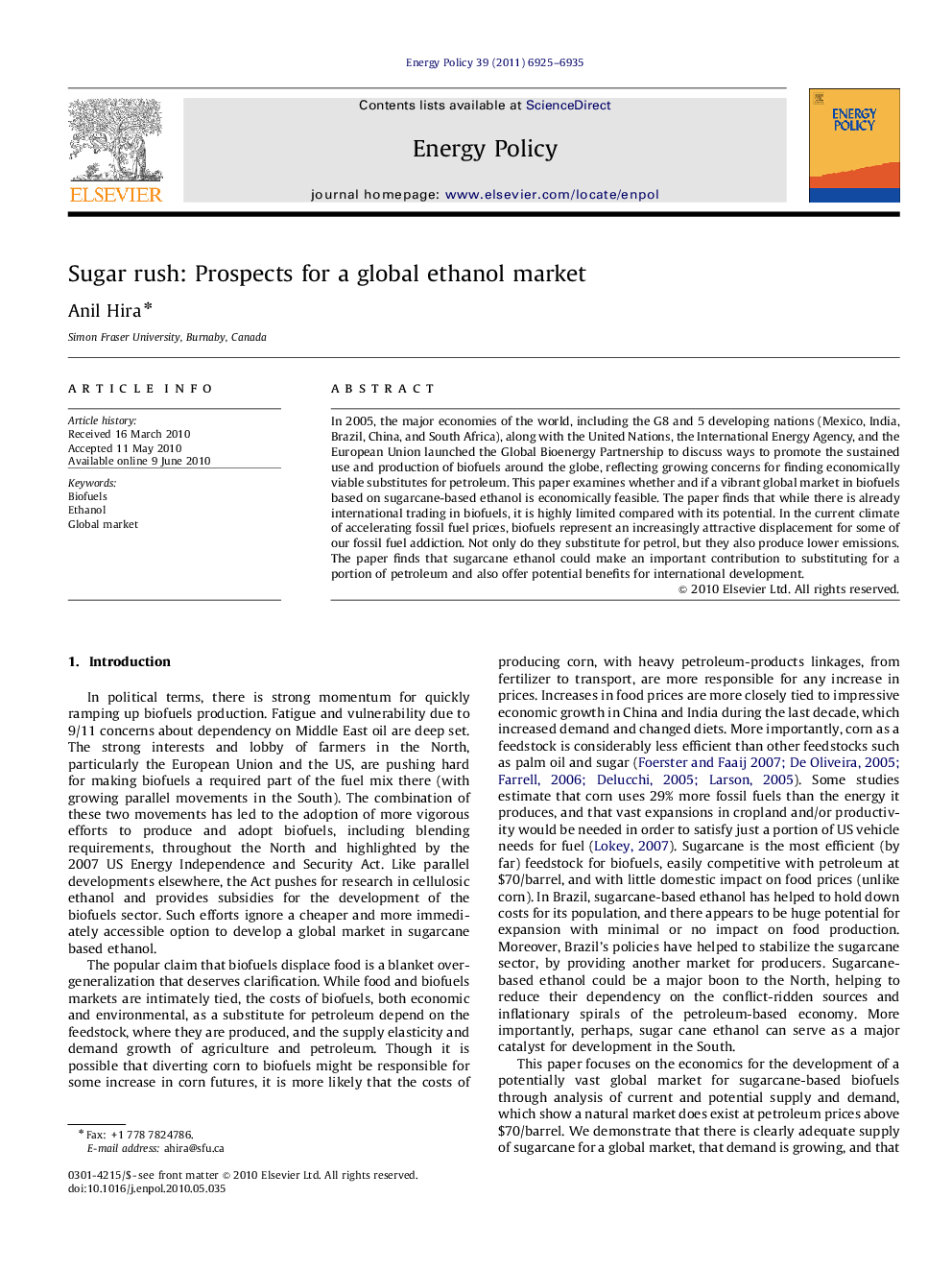| Article ID | Journal | Published Year | Pages | File Type |
|---|---|---|---|---|
| 993364 | Energy Policy | 2011 | 11 Pages |
In 2005, the major economies of the world, including the G8 and 5 developing nations (Mexico, India, Brazil, China, and South Africa), along with the United Nations, the International Energy Agency, and the European Union launched the Global Bioenergy Partnership to discuss ways to promote the sustained use and production of biofuels around the globe, reflecting growing concerns for finding economically viable substitutes for petroleum. This paper examines whether and if a vibrant global market in biofuels based on sugarcane-based ethanol is economically feasible. The paper finds that while there is already international trading in biofuels, it is highly limited compared with its potential. In the current climate of accelerating fossil fuel prices, biofuels represent an increasingly attractive displacement for some of our fossil fuel addiction. Not only do they substitute for petrol, but they also produce lower emissions. The paper finds that sugarcane ethanol could make an important contribution to substituting for a portion of petroleum and also offer potential benefits for international development.
